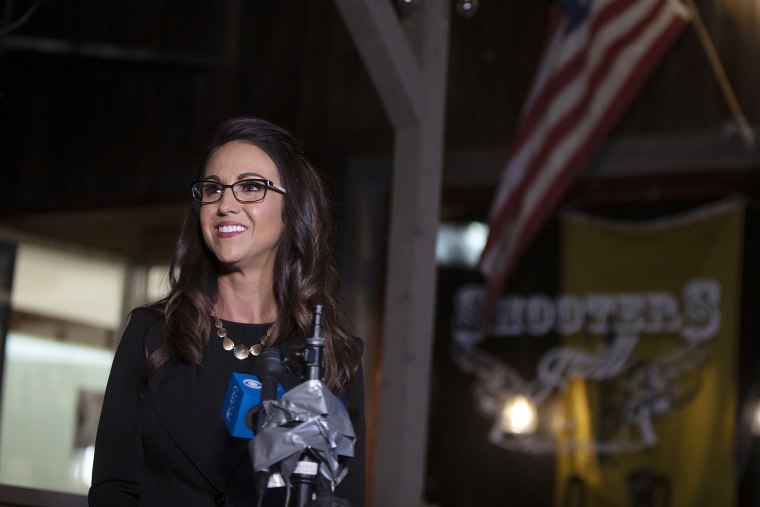Rep. Mikie Sherrill (D-N.J.) this week said she saw a fellow member of Congress giving a "reconnaissance" tour of the U.S. Capitol the day before last week's deadly insurrectionist attack. In an interview with MSNBC's Nicolle Wallace on Wednesday, Rep. Sean Patrick Maloney (D-N.Y.) said he'd spoken to a colleague -- not Sherrill -- who described a member "showing people around" ahead of the attack.
He went on to explain his fears about some of his fellow lawmakers.
"Some of our new colleagues, the same ones, of course, who believe in conspiracy theories and who want to carry guns into the House Chamber, who today — today — have been yelling at Capitol Police," Maloney said Wednesday, "shoving Capitol Police — who a week ago right now were risking their lives to save ours. This conduct is beyond the pale and extends to some of this interaction with the very people who attacked the Capitol."
Yesterday, Rep. Lauren Boebert (R-Colo.) issued a press statement denouncing the allegations and sent Maloney a letter demanding a retraction.
"Yesterday, on national television, Congressman Sean Maloney made false and baseless conspiracy claims about me that led to death threats and hundreds of vile phone calls and emails. His comments were extremely offensive, shameful and dangerous. There was not an ounce of truth to anything he claimed about me."
There was, however, a relevant detail: Maloney never referenced Boebert directly. It's a detail the New York Democrat emphasized on Twitter last night, in a response to the Colorado Republican.
"Um, I've never said your name in public, [Rep. Boebert]," Maloney wrote. "Never. Not once."
To which the GOP lawmaker responded, "A thousand apologies, [Rep. Maloney]. I'm glad you clarified you were not making any remarks about me whatsoever."
Not to be picky, but Maloney denied directly referencing Boebert, which isn't quite in line with her response.
Nevertheless, I've long been fascinated by instances of political figures denying allegations that were never specifically directed at them.
Twelve years ago, for example, the Department of Homeland Security released reports about domestic ideological extremists, alerting law enforcement officials to potentially violent groups and organizations. (The relevance of those findings never really went away.) At the time, Republicans and conservative activists were furious -- even though the report was commissioned by the Bush administration -- because much of the right feared that concerns about dangerous radicals might apply to them directly.
In effect, the right heard officials' concerns about potentially violent militants, and responded, "Hey, they might be talking about us."
This has happened several times throughout Donald Trump's term, including an incident in which Barack Obama issued a statement in the wake of mass shootings, in which the former president denounced leaders who "feed a climate of fear and hatred" or "normalize racist sentiments."
Trump assumed the description applied to him, though Obama never referenced his successor directly.
